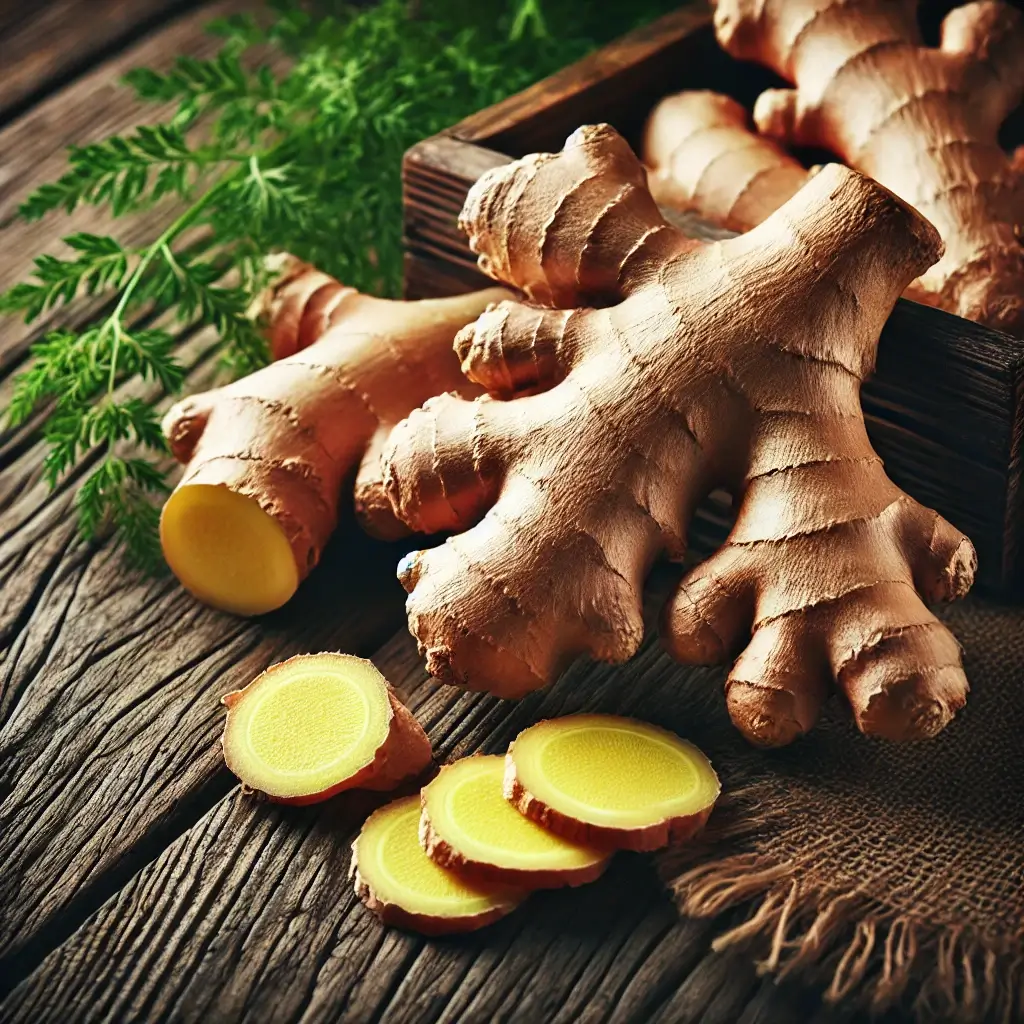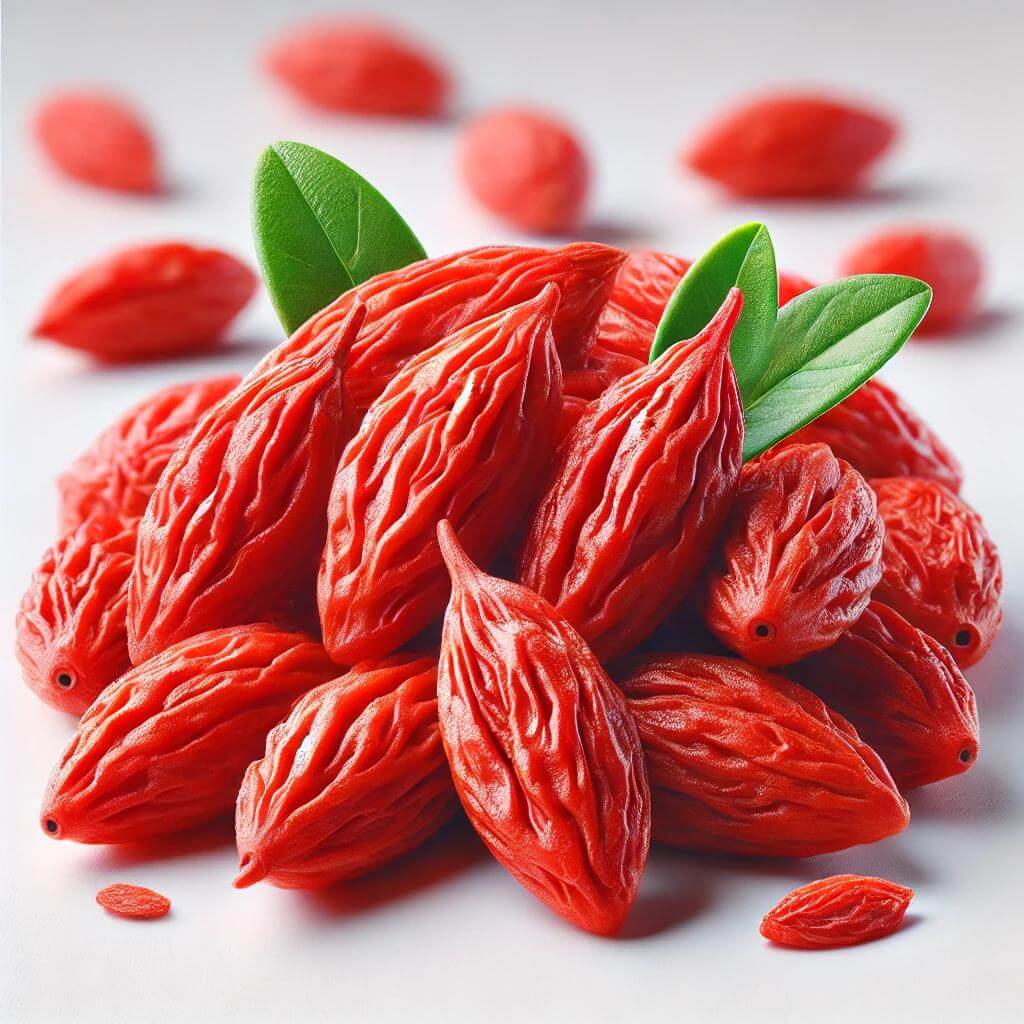Ginger: The Ancient Superfood with Modern Health Benefits
Ginger, a flowering plant native to Southeast Asia, has been used for thousands of years as a spice and medicinal herb. The root of the ginger plant, known as the rhizome, is the part most commonly used in cooking and natural remedies. With its distinctive spicy, pungent flavor and powerful health benefits, ginger has earned its reputation as a superfood. This article explores the numerous health advantages of ginger, how you can incorporate it into your daily diet, and any potential drawbacks you should be aware of.
Health Benefits of Ginger
1. Anti-Inflammatory and Antioxidant Properties
Ginger is well-known for its potent anti-inflammatory and antioxidant effects, which can help protect the body from chronic diseases and oxidative stress.
- Reduces Inflammation: Ginger contains bioactive compounds, particularly gingerol, that have powerful anti-inflammatory properties. Chronic inflammation is linked to many diseases, including heart disease, cancer, and diabetes. Consuming ginger regularly can help reduce inflammation in the body, potentially lowering the risk of these conditions.
- Antioxidant Activity: Antioxidants are essential for neutralizing free radicals, unstable molecules that can damage cells and lead to chronic disease. Ginger’s high antioxidant content helps protect the body from oxidative stress, supporting overall health and longevity.
2. Supports Digestive Health
Ginger has long been used as a natural remedy for various digestive issues, from nausea to indigestion.
- Eases Nausea: Ginger is highly effective at reducing nausea, whether it’s caused by morning sickness during pregnancy, chemotherapy, or motion sickness. Studies have shown that consuming ginger can significantly reduce nausea symptoms, making it a safe and effective remedy.
- Improves Digestion: Ginger stimulates the production of digestive enzymes, which helps the body break down food more efficiently. This can reduce bloating, gas, and indigestion, promoting a healthier digestive system.
- Relieves Bloating: The carminative properties of ginger help eliminate excess gas from the digestive tract, reducing bloating and discomfort.
3. Boosts Immune System
Ginger’s immune-boosting properties make it a valuable addition to any diet, particularly during cold and flu season.
- Fights Infections: Gingerol, the main bioactive compound in ginger, has antimicrobial properties that help the body fight off infections. Consuming ginger regularly can enhance your body’s ability to ward off harmful bacteria and viruses.
- Reduces Cold Symptoms: Ginger’s warming effects can help relieve symptoms of the common cold, such as a sore throat, congestion, and coughing. Drinking ginger tea is a popular remedy for soothing these symptoms and speeding up recovery.
4. Pain Relief
Ginger is a natural pain reliever, effective for a variety of conditions, from headaches to menstrual cramps.
- Reduces Muscle Pain: Studies have shown that ginger can reduce muscle pain and soreness, particularly after exercise. Its anti-inflammatory properties make it effective in reducing pain and improving recovery time.
- Eases Arthritis Symptoms: Ginger has been found to reduce pain and improve mobility in individuals with osteoarthritis, particularly in the knees. Regular consumption of ginger may help alleviate chronic pain associated with this condition.
- Alleviates Menstrual Pain: Ginger is also effective in reducing the severity of menstrual cramps. Some studies suggest that taking ginger at the onset of the menstrual period can reduce pain levels as effectively as some over-the-counter pain medications.
5. Supports Heart Health
Ginger’s benefits extend to heart health, offering protection against various cardiovascular issues.
- Lowers Cholesterol Levels: Regular consumption of ginger has been linked to reductions in LDL (bad) cholesterol and triglyceride levels, both of which are risk factors for heart disease. Lowering these levels can help protect against heart attacks and strokes.
- Regulates Blood Pressure: Ginger has vasodilatory effects, meaning it helps relax and widen blood vessels, which can lower blood pressure. This is beneficial for individuals with hypertension or those at risk of developing high blood pressure.
- Reduces Blood Sugar Levels: Some studies suggest that ginger can lower blood sugar levels and improve various heart disease risk factors in people with type 2 diabetes. By improving insulin sensitivity, ginger may help manage blood sugar levels and reduce the risk of diabetes-related complications.
6. Promotes Weight Loss
Ginger may aid in weight loss by boosting metabolism and reducing appetite.
- Enhances Fat Burning: Ginger can increase the number of calories burned during physical activity by boosting metabolism. This thermogenic effect makes it a helpful addition to a weight loss regimen.
- Suppresses Appetite: Some research suggests that ginger can help reduce hunger and increase feelings of fullness, leading to lower calorie intake and supporting weight loss efforts.
- Reduces Body Fat: Regular consumption of ginger may contribute to reductions in body fat, particularly belly fat, which is linked to a higher risk of heart disease and diabetes.
How to Incorporate Ginger into Your Daily Diet
Incorporating ginger into your daily diet is easy and versatile. Here are some practical ways to enjoy the benefits of ginger:
- Ginger Tea: One of the simplest ways to consume ginger is by making ginger tea. Simply steep fresh ginger slices in hot water for 10-15 minutes and enjoy. You can add honey and lemon for extra flavor and health benefits.
- Smoothies: Add fresh or powdered ginger to your morning smoothie for a spicy kick and an added health boost.
- Cooking: Ginger is a staple in many cuisines, especially Asian dishes. Use it in stir-fries, soups, curries, and marinades to enhance the flavor of your meals.
- Ginger Shots: Fresh ginger juice shots are popular for a quick and potent dose of ginger. Mix with lemon juice and a pinch of cayenne pepper for an invigorating start to your day.
- Baking: Ginger can be used in baking to add flavor to cookies, cakes, and breads. Gingerbread cookies and ginger cake are classic examples.
- Pickled Ginger: Often served with sushi, pickled ginger (gari) is a tasty way to enjoy ginger’s benefits while cleansing the palate between bites.
Potential Disadvantages of Ginger
While ginger is generally safe and beneficial for most people, there are some potential drawbacks to be aware of:
- Gastrointestinal Issues: In some cases, consuming large amounts of ginger can cause mild gastrointestinal issues, such as heartburn, diarrhea, or stomach upset.
- Blood Thinning: Ginger has blood-thinning properties, which can be beneficial for heart health but may pose risks for individuals on blood-thinning medications or those with bleeding disorders. It’s important to consult with a healthcare provider if you’re taking such medications.
- Allergic Reactions: Though rare, some individuals may have an allergic reaction to ginger, which can manifest as a rash, itching, or difficulty breathing. If you experience these symptoms, discontinue use and seek medical attention.
Nutritional Values of Ginger
| Nutrient | Amount per 100g | % Daily Value |
|---|---|---|
| Calories | 80 kcal | 4% |
| Carbohydrates | 17.8 g | 6% |
| Protein | 1.8 g | 4% |
| Fat | 0.7 g | 1% |
| Fiber | 2.0 g | 8% |
| Vitamin C | 5 mg | 8% |
| Potassium | 415 mg | 12% |
| Magnesium | 43 mg | 11% |
| Iron | 0.6 mg | 3% |
| Vitamin B6 | 0.16 mg | 8% |
Conclusion
Ginger truly lives up to its reputation as a superfood, offering a wide array of health benefits that range from reducing inflammation and aiding digestion to boosting the immune system and promoting heart health. Its versatility in the kitchen makes it easy to incorporate into your daily diet, whether you prefer it in teas, smoothies, or savory dishes. While it’s important to be aware of potential side effects, for most people, ginger is a safe and beneficial addition to a healthy lifestyle. By making ginger a regular part of your diet, you can harness its powerful health benefits and enjoy a tastier, healthier life.
*Disclaimer: The information provided in this article is for educational and informational purposes only and should not be construed as health advice. The content is solely the personal opinion of the author and is not intended to be a substitute for professional medical advice, diagnosis, or treatment. Always seek the advice of your physician or other qualified health provider with any questions you may have regarding a medical condition or before starting any new diet or treatment. Read more




Post Comment